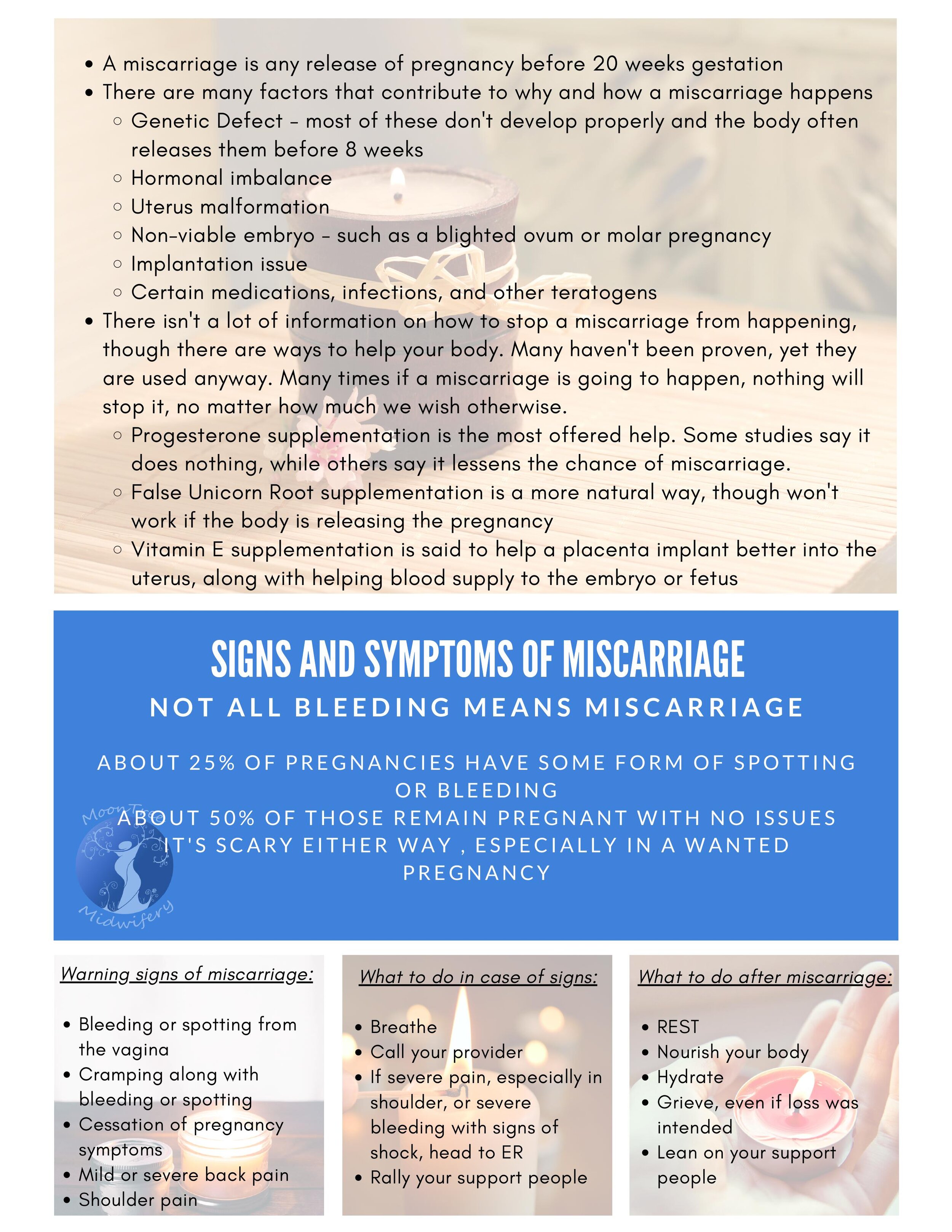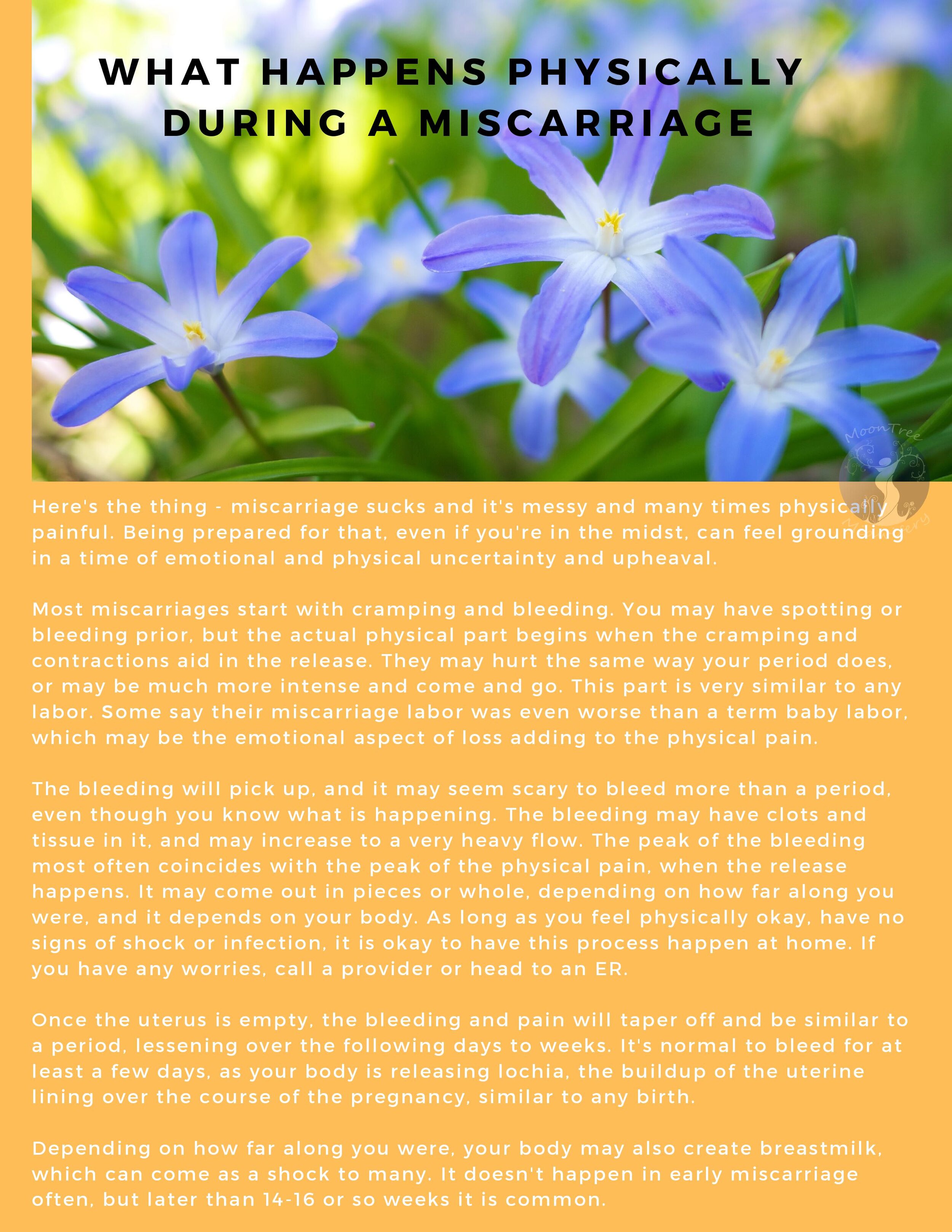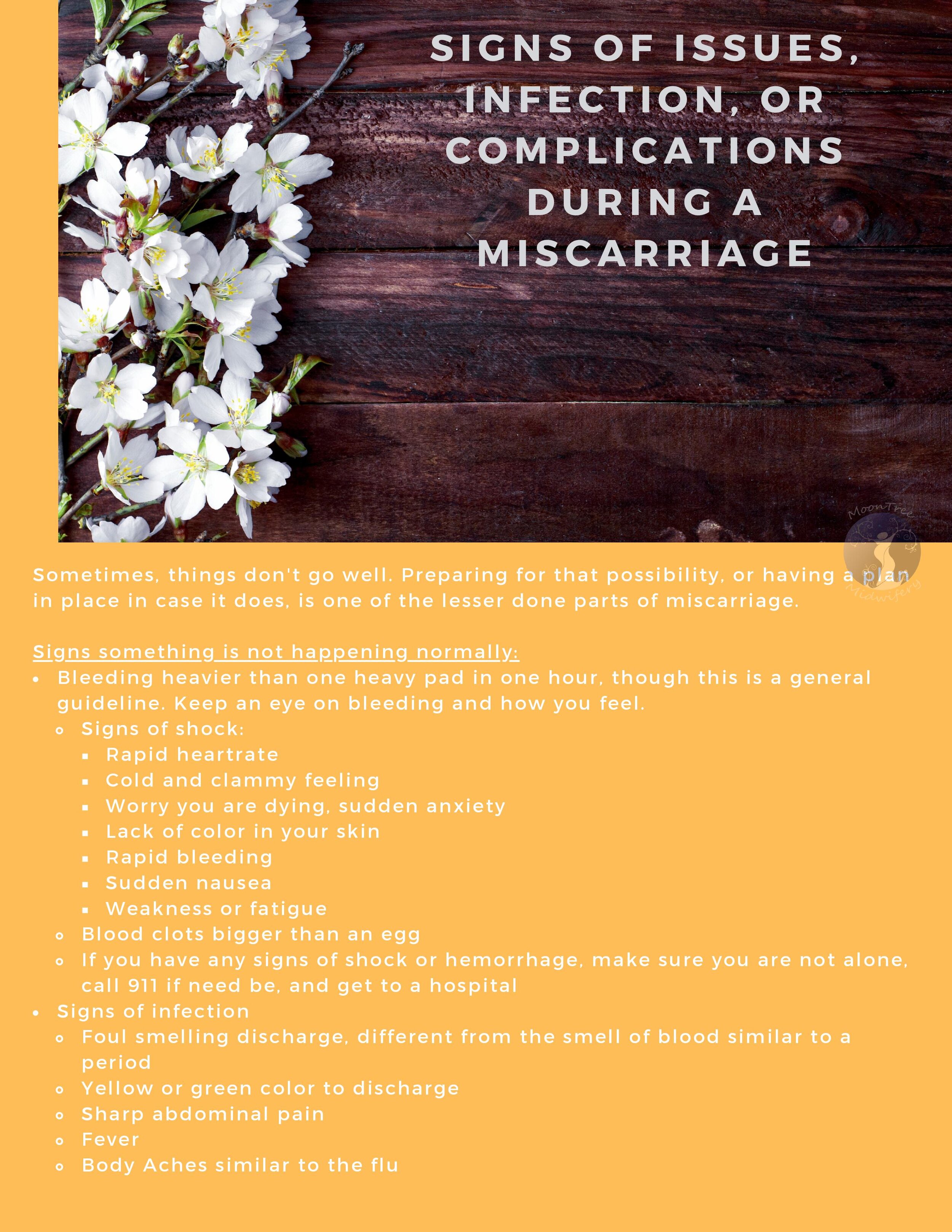Miscarriage Series - Part 1
This part one of a five part series, based entirely on miscarriage. It will talk about signs and symptoms of miscarriage, physical health, medical care, holistic care, physical healing, emotional healing, memorials, how to help a friend of family member, and will have three meditations available to listen to.
In my shop there is a document with every handout in one file, if you want to download them that way instead of individually from each post. There is a small fee for this to help with costs. The posts and handouts on each post are available for free, though donations are appreciated for the work to create this resource and also to help those going through a miscarriage. Links to donate are available at the end of each post.
———————————————————
Miscarriage is defined as any pregnancy release before 20 weeks gestation. This could be something as early as 3 weeks all the way to 20 weeks of pregnancy. Because so many things happen during this time in pregnancy, it can seem really odd that they are defined by the same word, but welcome to science. It is also a word that many people hate, as if you missplaced your pregnancy, as if it was under your control.
For many people, this is a loss of a wanted pregnancy. For some it isn’t, and for others it is the wanted end of a pregnancy. There are many emotions beneath the surface, and one person’s experience isn’t the same as another’s, even if they happen at the exact same gestation and in the same way.
There are many types of miscarriage, depending on how far along the pregnancy, lab values if labs are taken, ultrasound results, and how the pregnancy is growing or not growing. Some basics to miscarriage types are:
Missed Miscarriage - when an embryo or fetus stops growing, but there are no outward signs of issues. Most of these are found either through routine ultrasound or when the miscarriage begins without other signs and symptoms of something amiss. Most missed miscarriages are treated with medical care, as waiting for the body to catch up and begin the process can be hard and longer than a few days.
Chemical Pregnancy - A pregnancy that progresses in chemical and hormone only, most often released before six weeks gestation. You may get a light positive test, followed by negative tests, or no positive tests at all if your hormone levels are not high enough, but have a period different than others.
Blighted Ovum - A fertilized egg that never develops and embryo or fetus. Ultrasounds in this case show nothing more than an empty sac. You may have all the symptoms of a healthy pregnancy, as the body is still supporting the growth of the sac. Sometimes in this case the only way to release the ovum is with medical or herbal means.
Molar Pregnancy - A fertilized egg continues to divide and grow, not becoming an embryo or fetus. It some cases, it can become a type of cancerous cell, and leave behind parts of itself and can affect future pregnancies. Care of a known molar pregnancy are specific and medical, though the chance of a molar pregnancy are very low and it is more rare than other types of pregnancy.
Ectopic pregnancy - Any embryo that does not implant into the lining of the uterus, though most often implantation occurs in the uterine tubes. If it is undiagnosed, it can lead to a tubal rupture, and emergency surgery is required to stop the bleeding. If a pregnancy implants anywhere outside the uterus, the odds of the pregnancy continuing are very slim, and planned release and/or surgery are necessary to save the life of the pregnant person. There is no way to reimplant an ectopic pregnancy.
In most cases, miscarriages happen before 8 weeks gestation, or one month after your missed period. The majority of these are caused by a genetic defect in the fertilized egg, and nothing you did caused it. The chances of miscarriage before 8 weeks are around 1 in 4, after 8 weeks, it lowers to around 5% of pregnancies. After 12 weeks, or when most feel comfortable announcing their pregnancy, the chance of miscarriage drops to around 1%. This isn’t to say it doesn’t happen, just that the chances are smaller than before.
In general, no one truly knows why miscarriage happens. There are times when it’s genetic and the cause can be found, but sometimes miscarriages just happen, though no fault of anyone. With the routine use of early ultrasound, more missed miscarriages are being found, leading to an increase in miscarriage numbers, when 50 years ago most wouldn’t even know they were pregnant at that point.
No matter the cause, miscarriage is hard. It’s hard physically and emotionally. The body goes through a hormonal shift, which causes an upheaval, even if the pregnancy wasn’t desired or tried for. Being prepared for the physical and emotional aspects of miscarriage, even after the fact, can help ease the adjustment and transition.
The physical signs of miscarriage include, but are not limited to:
Spotting or bleeding, with or without cramping
Back pain
Shoulder pain
Cramping, even without bleeding
Abrupt cessation of pregnancy symptoms
Sometimes everything can seem like it is going well and fine and the next minute you could be in labor and miscarrying the pregnancy. There is no rhyme or reason to why it happens. In general, most miscarriages resolve on their own, with no need for outside help or physical preparation. However, with early ultrasound being more routine, many more people than before are aware a miscarriage will happen before the body is prepared for it to begin.
If a miscarriage begins without prior knowledge, the most important thing is to stay calm and monitor your body. Keep an eye on your bleeding, take pain medication such as tylenol if needed, and make sure you feel okay. Some say that a miscarriage is just a heavy period, and for some that is accurate, but for others it can be very painful and the bleeding heavy enough to be worrisome.
In general, there are many guidelines to follow if you are going through a miscarriage or planning on going through a miscarriage.
If you have heavy bleeding of more than one heavy pad in an hour, the pad completely saturated, you could be bleeding too heavily and need assistance.
If you have severe and persistent abdominal, back, or shoulder pain, it could indicate infection or internal bleeding and you need to get medical assistance as soon as you can.
Labor during a miscarriage will proceed fairly normally, without any outside help, from lighter bleeding and cramps to more intense and heavy bleeding and stronger cramps and contractions. The bleeding and pain will normally peak with the release, and then both will taper off over the next days. You will bleed for a few days or weeks after, as the body is releasing the lining created during the pregnancy. Even if you have a surgical release, the bleeding will continue.
Blood clots and bits of tissue are normal parts of a miscarriage, and unless the blood clots are larger than the size of an egg or you feel funny or weak, are nothing to worry about.
If you notice any signs of infection, such as foul smell, sharp abdominal pain, or strange colored discharge, getting medical help may be the best option to make sure it doesn’t spread.
Sometimes milk comes in after a miscarriage, though it’s more common for this to happen after 20 weeks of pregnancy. Stillbirthday has a great resource (written by me) on lactation after miscarriage, and I won’t recreate the wheel for you here.
——————
Below are the three handouts as image files that are free to download. Simply click on each to be taken to their file page. If you wish to have higher quality PDFs, please visit my store for the file containing every handout in this series.
If you need a coupon code or the files for less than the $10 they sell for, please reach out to me.
If you wish to donate to my business to help those going through miscarriage, you can below as well. I offer holistic loss services as donation based fee only.



